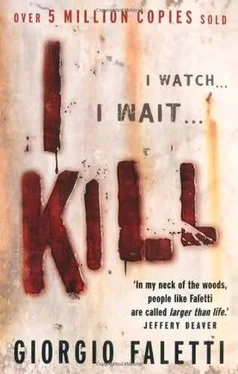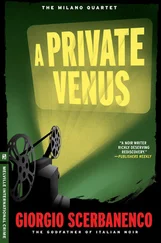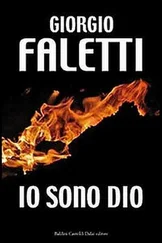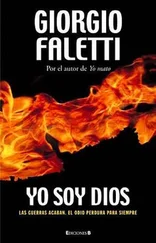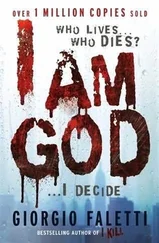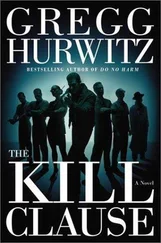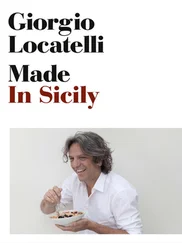Yoshida lay down on a teak chaise longue by the pool and stretched his legs. He looked around. There were a few lights out at sea and the moon was on the wane. In front of him, he could make out the glare of Monte Carlo, the home of most of his guests that evening.
He turned to look at his house. He loved the place and felt privileged to own it. He loved its old-fashioned lines, the elegance of its construction combined with its functional severity. It had been built in the early thirties for the screen goddess of the era, Greta Garbo. When he purchased it, the house had been closed up for years and he had had it renovated by a brilliant and eye-wateringly expensive architect.
He had given him free rein, asking only that he retain the spirit of the house. The result was a resounding success: impeccable style married to the most advanced technology. A residence that left everyone dumbfounded, just as he had been the first time he had crossed the threshold. The fee had contained a seemingly endless number of zeros, and he had paid it without batting an eye.
He leaned against the back of the chaise longue, moving his head to stretch his neck. He slipped his hand into the inside pocket of his jacket and took out a tiny gold bottle. Unscrewing the cap, he tapped a pinch of white powder on to the back of his hand. He brought his hand to his nose and sniffed the cocaine directly, then rubbed his nostrils with his fingers to remove the residue of powder.
Everything around him was proof of his success and power. Still, Allen Yoshida had no illusions. He remembered his father who used to break his back unloading crates of fish on to his truck from the refrigerated cars when they came in from the coast, and then drove around to supply New York’s Japanese restaurants. He remembered when he came home from work, preceded by the stench of fish that he could never get rid of, however much he washed his hands. He remembered their dilapidated house in the rundown neighbourhood of the city and he remembered as a child hearing his parents talk about how they needed to repair the roof and the plumbing. He could still hear the pipe gurgling every time they turned on a faucet, and the rush of rusty water that poured out. You had to wait a couple of minutes before the water ran clear enough so that you could wash. He had grown up there, the son of a Japanese man and an American woman, straddling two cultures, a gaijin in the Japanese community’s limited way of thinking and a Jap for white Americans. For everyone else – blacks, Puerto Ricans, Italians – he was just one more half-breed on the city streets.
He felt the lucid rush of the cocaine start to circulate and he ran a hand through his thick, shiny hair.
It had been a long time since he had had any illusions. Actually, he’d never had any. Everyone who had come to his home that evening was there not for the man he was but for what he owned. For those billions of dollars. None of them were really interested in knowing whether or not he was a genius. What they cared about was the fact that his genius had helped him amass a personal fortune that made him one of the world’s ten richest men.
Nothing else counted very much for anyone. Once you achieved the result, it did not matter how. Everyone knew him as the brilliant creator of Sacrifiles, the operating system that competed with Microsoft on the world computer market. He’d been eighteen when he had launched it, when he’d created Zen Electronics with a loan from a bank that believed in the project after he had shown a group of astonished investors his system’s simple operations.
Billy La Ruelle should have been with him to share in the success. Billy, his best friend, who had studied with him at the same computer school, and who had come home one day with the dazzling idea for a revolutionary operating system that ran in a DOS environment. They had worked on it in absolute secrecy, he and Billy, for months, day and night, on their two computers linked via a network. In a tragic accident, Billy had fallen from the roof when they had gone up to fix the TV aerial the day before the Bulls-Lakers play-off. He had slipped on the sloping roof like a sled on ice and had found himself hanging from the drainpipe. Yoshida had stood there watching, immobile, as Billy begged him for help. His body was suspended in the air and the left side of the metal sheeting was giving way under his weight. Yoshida had seen his friend’s knuckles grow white in the effort to hold on to the sharp edge of the drainpipe, and to his life.
Billy had fallen with a scream, looking at Yoshida with desperate, widening eyes. He had landed with a thud on the concrete in front of the garage and lain there motionless, his neck bent in an unnatural position. The piece of drainpipe that had broken off had ironically fallen right into the basketball net attached to the wall outside the house where he and Billy let off steam during their breaks. As Billy’s mother ran out of the house screaming, Yoshida had gone into his friend’s bedroom and downloaded everything on the hard drive on to floppy disks before erasing it so that nothing remained. He had slipped the disks into his back pocket and then run out into the courtyard, over to Billy’s lifeless body.
Billy’s mother was sitting on the ground. She had her son’s head in her lap and was stroking his hair. Allen Yoshida had cried his crocodile tears. He had knelt down beside her, feeling the hard surface of the disks in his pocket. A neighbour had called an ambulance. It had arrived in record time, preceded by a siren that was strangely similar to the cries of Billy’s mother, and stopped with a screech of tyres and brakes. Paramedics had calmly carried off his friend’s body, covered with a white sheet.
An old story. One to forget. Now his parents lived in Florida and his father had finally managed to rub his hands clean of the stench of fish. And even if he hadn’t, anyone would swear that the stench was perfume – thanks to Allen’s dollars. He had paid to put Billy’s mother through rehab for her drinking and had bought his parents a house in a nice neighbourhood where they lived without any hassle, thanks to the money he sent them every month. No rusty water, no boarded-up stores. Once, when they had met, his friend’s mother had kissed his hands. As often as he washed them, he had felt that kiss burning on his flesh for a long time.
Yoshida got up and went into the house. He took off his jacket and threw it over one shoulder. The dampness of the night penetrated his thin shirt, making it stick to his skin. He picked a white gardenia from a bush and brought it to his nostrils. The cocaine had numbed his nose, but he could still smell its delicate fragrance.
He went back into the living room and took the remote control out of his pocket. He pushed and the shatterproof windows closed without a sound, sliding down on perfectly oiled hinges. He turned off the lights in the same way, leaving a glimmer in a few hall lights set into the wall. He was alone, finally. It was the moment to dedicate a little time to himself and to his pleasure, his secret pleasure.
The models, the bankers, the rock stars, the actors who flocked to his parties were only splashes of colour on a white wall, faces and words to be forgotten as easily as they were noticed. Allen Yoshida was a handsome man. He had inherited his Yankee proportions and height from his American mother and the tight, well-defined Asian bone structure from his father. His face was a mixture of the two races, with the arrogant charm of all accidents. His money and his looks had universal appeal. And everyone was intrigued by his solitude. Women, especially, showed off breasts and bodies full of promises so simple to fulfil in that obsessive search for life-affirming contact. Faces that were so open, so easy to read, that even before he got started he could already read the words ‘The End’. To Allen Yoshida, sex was strictly the pleasure of the stupid.
Читать дальше
